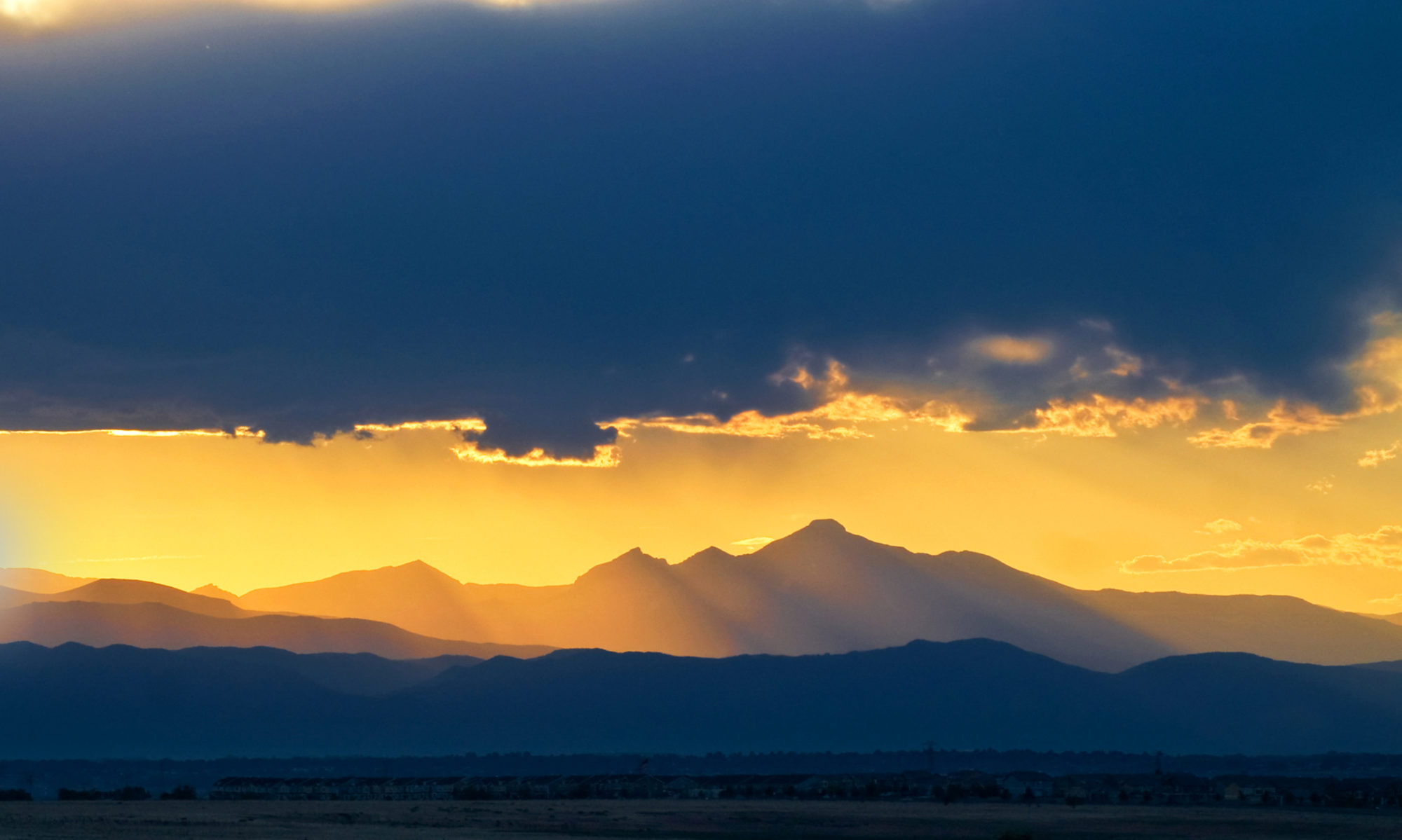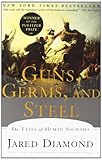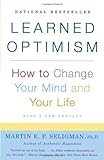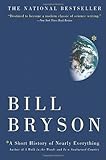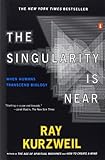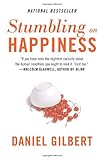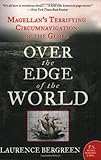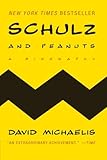Thoughtful examination of comedy has spawned some of the best books I’ve read, all profound reflections of the most important trends in society. Chief among these is Nachman’s look at the comedic turmoil of the 1950s, a brew rich with such icons as Lenny Bruce, Mort Sahl, Woody Allen and Sid Caesar. He provides detailed biographies not only of household names like these, but also comics like Jean Shepherd, Shelley Berman, and Will Jordan whose legacies have far outpaced their name recognition.
Almost as good are Zoglin’s look at the decades just after the 1950s, Kanfer’s examination of Groucho Marx and his times, and Martin’s poignant, rueful reflections on his eighteen year stand-up career.
Goleman’s 1995 book Emotional Intelligence arrived like a storm into a world focused solely on IQ. His book is a survey of the research on emotions, and he argues compellingly that emotional intelligence is in many respects a more important form of intelligence and a more important determinant of a the outcomes in a person’s life. Together with his follow up bookSocial Intelligence, he provides an indispensable resource for a deeper understanding of human behavior.
I normally avoid polemics, but Jacob’s 1961 book is the ultimate polemic, stemming from her improbably successful fight to preserve NYC’s Soho and outflank the huge city planning industry whose flawed theories were then ruining the very cities they were trying to improve. Her four rules for vibrant neighborhoods stand as an icon of clear thinking. In this lively book, Jacobs creates a new paradigm for urban planning and explains what makes streets safe or unsafe; what constitutes a neighborhood, what function it serves within the larger organism of the city, and why some neighborhoods remain impoverished while others regenerate themselves.
The Comanche were the most fierce of the Native American tribes, and Quanah Parker was the boldest of their chiefs. He took his stand against the unstoppable encroachment of settlers in the West at the very moment that Comanche resistance was doomed. Empire of the Summer Moon is a vivid historical account of the forty-year battle between Comanche Indians and white settlers for control of the American West. Gwynne is an extraordinarily gifted writer, and his follow up book, Rebel Yell — a biography of the legendary Confederate General Stonewall Jackson — is every bit as powerful.
A survey of western history’s most important scientists and a wonderfully readable account of scientific development over the past five hundred years, focusing on the lives and achievements of individual scientists. He begins with Copernicus, during the Renaissance, when science replaced mysticism as a means of explaining the workings of the world, and he continues through the centuries, breathing new life into such icons as Galileo, Isaac Newton, Albert Einstein and Linus Pauling.
As a Texan who was transplanted to the East Coast, my bias is that it is impossible to understand American history without a deep understanding of the Western United States. This compelling book provides that chronicle with all the legend and Hollywood cliché peeled away, and in doing so reveals something all the more compelling and instructive. The companion volume to the PBS television series, the book chronicles the arrival of wave after wave of newcomers from every direction of the compass: explorers, trappers, soldiers, gold miners, Mormons, railroaders, cowboys, lumbermen, ranchers and others. It is an ethnic collision of Indians, Mexicans, Yankees, ex-Confederates, European immigrants and Chinese.
This book is a history of debt and money, but in some respects, it is also a history of the world. Often an emotionally charged polemic, it shatters the conventional myths of the history of money, explores the moral issues surrounding debt, and builds the foundation for a clearer, better understanding of both economics and social justice. Graeber shows that before there was money, there was debt. For more than 5,000 years, since the beginnings of the first agrarian empires, humans have used elaborate credit systems to buy and sell goods — that is, long before the invention of coins or cash. It is in this era, Graeber argues, that we also first encounter a society divided into debtors and creditors. Graeber shows that arguments about debt and debt forgiveness have been at the center of political debates from Italy to China, as well as sparking innumerable insurrections. He also brilliantly demonstrates that the language of the ancient works of law and religion (words like “guilt,” “sin,” and “redemption”) derive in large part from ancient debates about debt, and shape even our most basic ideas of right and wrong.
A history of the period between world war one and world war two that traces the emergence of the United States as the world’s dominant power. The sin of most historians is to ignore the financial aspects of history, but almost invariably, financial factors are the most central of all. In the depths of the Great War, The heart of the financial system shifted from London to New York. The infinite demands for men and matériel reached into countries far from the front. The strain of the war ravaged all economic and political assumptions, bringing unheard-of changes in the social and industrial order. The book explores the ways in which other countries came to terms with America’s centrality — including the slide into fascism — and redefines the legacy of World War I.
The Best of the Rest
This book demonstrates the profound difference that optimism and pessimism make in each of our lives, a thesis grounded in sophisticated research and experimentation. The book further makes the case that those with the habit of pessimism can train themselves to be more optimistic, with meaningful and enduring effect. Known as the father of the new science of positive psychology, Martin E.P. Seligman draws on more than twenty years of clinical research to demonstrate how optimism enhances the quality of life, and explores the practice of optimism.
Bill Bryson is a treasure, and his prolific output includes books on Shakespeare, the roaring 20s, the home, England, Australia, Africa and a host of additional subjects. Frankly, I recommend all of them. Each is, in essence, an entertaining and substantive overview of the subject at hand. I am astonished at the level of mastery he achieves on such a rich variety of subjects. My pick here is A Short History of Nearly Everything, which covers everything from the Big Bang to the rise of civilization. Made in America — a history of the American version of the English language — is almost as good.
We like to hold up icons like George Washington, Abraham Lincoln, and Thomas Edison as the best examples of the American character. For my money, P.T.Barnum may be the better and more representative example of who we really are. Barnum was one of the wealthiest and best known Americans in the mid-1800s, and his America Museum in Manhattan the country’s most popular and highest grossing attraction (his circus came much later). His sweeping boldness and bravura were a perfect reflection for an era in which America became the wealthiest country in the world, and we owe at least some of some of who we are to Barnum.
As proprietor of his museum, Barnum went on to promote an array of amazing acts: the midget Tom Thumb, the Swedish singer Jenny Lind, bearded ladies, Siamese twins, the first hippopotamus in America, and the world’s most famous elephant — Jumbo.
I’m a sucker for books on words and language, and this is certainly among the best. Covering such turning points as the little-known Celtic and Welsh influences on English, the impact of the Viking raids and the Norman Conquest, and the Germanic invasions that started it all during the fifth century CE, Our Magnificent Bastard Tongue ultimately demonstrates the arbitrary, maddening nature of English — and its ironic simplicity due to its role as a streamlined lingua franca during the early formation of Britain.
Who knew that an entertaining and useful overview of world history could be contained in this short history of six beverages? And yet here it is, the story of humanity from the Stone Age to the 21st century through the lens of beer, wine, spirits, coffee, tea, and cola. Beer was first made in the Fertile Crescent and by 3000 B.C.E. was so important to Mesopotamia and Egypt that it was used to pay wages; in ancient Greece wine became the main export of her vast seaborne trade, spirits such as brandy and rum fueled the Age of Exploration, coffee stoked revolutionary thought in Europe during the Age of Reason, tea became especially popular in Britain, with far-reaching effects on British foreign policy, and Coca-Cola became the leading symbol of modern globalization.
And if you do read it, you must follow it up with Kurlansky’s history of Salt. For most of history up until the last century or so, salt — with its critical role as a food preservative in the era before refrigeration — was as important to the world as oil is today, and was a crucial determinant of wealth, politics, trade, and war.
A breathtaking and forcefully argued vision of the future, Kurzweil submits that the pace of change will continue to accelerate, solar energy will rise to serve all our energy needs, and humanity itself will become digital. Kurzweil examines the union of human and machine, in which the knowledge and skills embedded in our brains will be combined with the vastly greater capacity, speed, and knowledge-sharing ability of our creations.
Happiness has become one of the most important subjects of academic psychology, and rightly so. This book puts forward the large body of research on that subject, and demonstrates how we routinely and grossly misperceive what it is that will bring us happiness, while missing those things that will. A systematic and sometimes humorous look at the science underneath our human foibles.
A story of Florence during the era of the Medicis, when a reclusive, prickly genius named Fileppo Brunelleschi both reinvented architecture, and invented the revolutionary new technique of perspective in painting. He engineered the perfect placement of brick and stone, and built ingenious hoists and cranes (among some of the most renowned machines of the Renaissance) to carry an estimated 70 million pounds hundreds of feet into the air to create Florence’s magnificent Duomo. This drama was played out amid plagues, wars, political feuds, and the intellectual ferments of Renaissance Florence.
A dense, scholarly overview of the last 500 years of occidental history. In the last half-millennium, as the noted cultural critic and historian
Jacques Barzun observes, great revolutions have swept the Western world. Each has brought profound change–for instance, the remaking of the commercial and social worlds wrought by the rise of Protestantism and by the decline of hereditary monarchies. And each, Barzun hints, is too little studied or appreciated today, in a time he does not hesitate to label as decadent — which he tellingly defines as the wide acceptance of key things known to be untrue.
Illuminating the Age of Discovery, Bergreen writes this powerful tale of Magellan’s expedition that was the first to sail around the world. The voyage was an adventure in the most dramatic sense of the word — intensely painful and harrowing. His day-by-day account incorporates the testimony of sailors, Francisco Albo’s pilot’s log and the eyewitness accounts of Venetian scholar Antonio Pigafetta, who was on the journey. Magellan’s mission for Spain was to find a water route to the fabled Spice Islands, and in 1519, the Armada de Molucca (with five ships and some 260 sailors) sailed into the pages of history. Many misfortunes befell the expedition, including the brutal killing of Magellan in the Philippines. Three years later, one weather-beaten ship, “a vessel of desolation and anguish,” returned to Spain with a skeleton crew of eighteen gaunt sailors.
If you don’t love theater don’t read this.It is the story of Lerner and Lowe’s three masterpieces — Camelot, Gigi, and My Fair Lady — told with Lerner’s rapier wit and incisive prose. At some levels, this is my personal favorite of all the books listed here, and I have re-read it many times for pure pleasure. It is the story of what Mr. Lerner calls “the sundown of wit, eccentricity, and glamour.” The author himself, try as he will to keep himself out of his pages, emerges not merely as a great talent, but as a man of laughter and love. His principals, however, are Moss Hart and Fritz Loewe, with a stupendous supporting cast: Julia Andrews, Richard Burton, Rex Harrison, Cecil Beaton, Louis Jourdan, Maurice Chevalier, Leslie Caron, Vincente Minnelli, Arthur Freed . . . and on and on. They are seen intimately in moments of triumph, disaster, doubt and panic, pettiness and laughter.
The complete, no-holds-barred history of Africa has been neglected, but Meredith more than makes up for that in this tour de force that covers everything from the pyramids, the conquests of the Greeks and the spread of Islam — to the Suez Canal, the diamond mines, and the emergence of post-colonial states. In this vast and vivid panorama of history, Martin Meredith follows the fortunes of Africa over a period of 5,000 years. He traces the rise and fall of ancient kingdoms and empires; the spread of Christianity and Islam; the enduring quest for gold and other riches; the exploits of explorers and missionaries; and the impact of European colonization. He examines, too, the fate of modern African states and concludes with a glimpse of their future.
The dominance of Charles Schulz’s Charlie Brown and Peanuts in American pop culture in the mid-to-late twentieth century is impossible to overestimate. At its peak, his cartoon strip was read by over 300 million people. For all the joy it brought, Charles Schulz, was a profoundly unhappy man. Michaelis reveals the full extent of Schulz’s depression, tracing its origins in his Minnesota childhood, with parents reluctant to encourage his artistic dreams and yearbook editors who scrapped his illustrations without explanation. In one sequence, Snoopy’s crush on a girl dog is revealed as a barely disguised retelling of the artist’s extramarital affair. Michaelis is especially strong in recounting Schulz’s artistic development, teasing out the influences on his unique characterization of children. And Michaelis makes plain the full impact of Peanuts’ first decades and how much it puzzled and unnerved other cartoonists. Peanuts, full of empty spaces, didn’t depend on action or a particular context to attract the reader; it was about children — who he used as surrogates for adults — working out the interior problems of their daily lives without ever actually solving them. The absence of a solution was the center of the story.
As we have pointed out on occasion, Americans tend to read histories of World War II, the Civil War, and very little else, which makes biographies like this one all the more important. Woodrow Wilson was the deeply flawed genius who served as America’s twenty-eighth president and dominated on the most pivotal moments in world history — the years surrounding and including World War I. From the visionary Princeton president to the architect of the ill-fated League of Nations, from the devout Commander in Chief who ushered the country through its first great World War to the widower of intense passion and turbulence who wooed a second wife with hundreds of astonishing love letters, from the idealist determined to make the world “safe for democracy” to the stroke-crippled leader whose incapacity — and the subterfuges around it — were among the century’s greatest secrets, Wilson is ultimately a tragic figure.
Galileo’s Daughter, Dava Sobel
Galileo, one of the progenitors of the scientific revolution, wrote one hundred and twenty-four extant letter to his daughter Maria Celeste. Ultimately jailed for the heresy of his belief that the Earth orbited the Sun, this is Galileo’s dramatic story illuminated by these letters. Moving between Galileo’s grand public life and Maria Celeste’s sequestered world, Dava Sobel illuminates the Florence of the Medicis and the papal court in Rome during the pivotal era when humanity’s perception of its place in the cosmos was about to be overturned. During that same time, while the bubonic plague wreaked its terrible devastation and the Thirty Years’ War tipped fortunes across Europe, Galileo sought to reconcile the Heaven he revered as a good Catholic with the heavens he revealed through his telescope.
